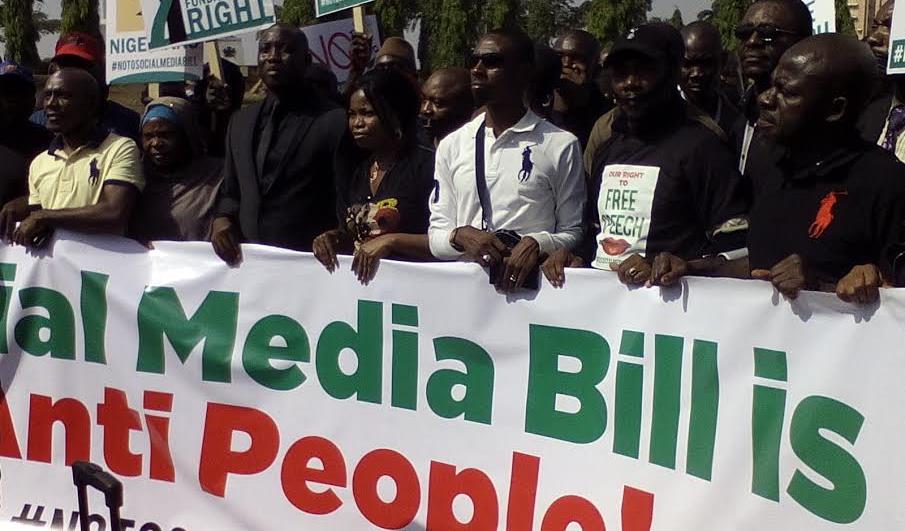Report raises concern over Cybercrimes Act
The African Media Barometer reviewing media landscape in Nigeria has raised concern that the recently enacted Cybercrimes (prohibition and prevention) Act is “emerging as a serious threat”. The law was passed only this year and three people have already been taken to court over thing they wrote or did on the internet, according to the […]


The African Media Barometer reviewing media landscape in Nigeria has raised concern that the recently enacted Cybercrimes (prohibition and prevention) Act is “emerging as a serious threat”.
The law was passed only this year and three people have already been taken to court over thing they wrote or did on the internet, according to the latest AMB report presented in Abuja this week.
The Cybercrimes Act earned Nigeria a poor score, compared with scoring on the basis of the Freedom of Information Act.
Abdulwaheed Odusile, president of the Nigerian Union of Journalists, said the jailing of the “three colleagues” took the media world by shock.
Speaking among panellists at the launch of the AMB 2015 report, Odusile said while the media world applauded the FOI Act despite challenges in compliance, “by stealth the government brought in the Cybercrimes Act to clamp down on ‘crimes’ that can be committed by expressing yourself on social media.”
Lack of protection
The report had assessors score Nigeria using indicators jointly developed by the fesmedia Africa, the media project of Friedrich-Ebert-Stiftung in Africa, and the Media Institute of Southern Africa.
In its third assessment of Nigeria—among 30 other country reports—AMB says a lack of specific protection for journalists breeds fear in the media.
“Operating under bad economic conditions, media houses are also mindful of the consequences of their reporting on business, while journalists try not to offend some newsmakers with business, political or other ties to their employers,” the report says.
For instance, it says government tries to strangle media houses deemed opposition or influence editorial stand by denying advert revenues.
The report laments delay in switchover from analogue to digital broadcasting to free up more channels for use by new broadcasters.
But it also commends widespread licensing of 17 community radios within the period under review.
It notes the explosion of social media and online journalism has presented challenges in the guise of making everyone a journalist.
“Hardly in boardrooms”
Despite the explosion, fewer women rise to important positions in newsrooms, even though most of the brightest students from journalism schools and faculties are usually young women, the AMB 2015 argues.
“We signed affirmative action, but you will hardly see women on boards,” said Gina Daka-Osika, among panelists at the launch of the AMB 2015 report.
Among its recommendations, it calls for proper laws to regulate—not restrict—entry into the media such that it doesn’t become an all-comers affairs, according to Odusile.
The recommendation could see the Nigerian Institute of Journalism or the Institute of Journalism turned into a “finishing school” for journalism—and the screen door through every professional entering journalism must go through, he said.
Regulation has mostly been done by the Nigerian Press Council, which has been seen as heavily concerned with print media and less about broadcast.
But a court case has left the council “fighting for survival”, says Akin Akingbulu, director of Institute for Media and Society. “At the fountain, the whole thing is already poisoned.”
Analysts are concerned that an uncertain court ruling could turn the council into another agency like the National Broadcast Commission under government control.
